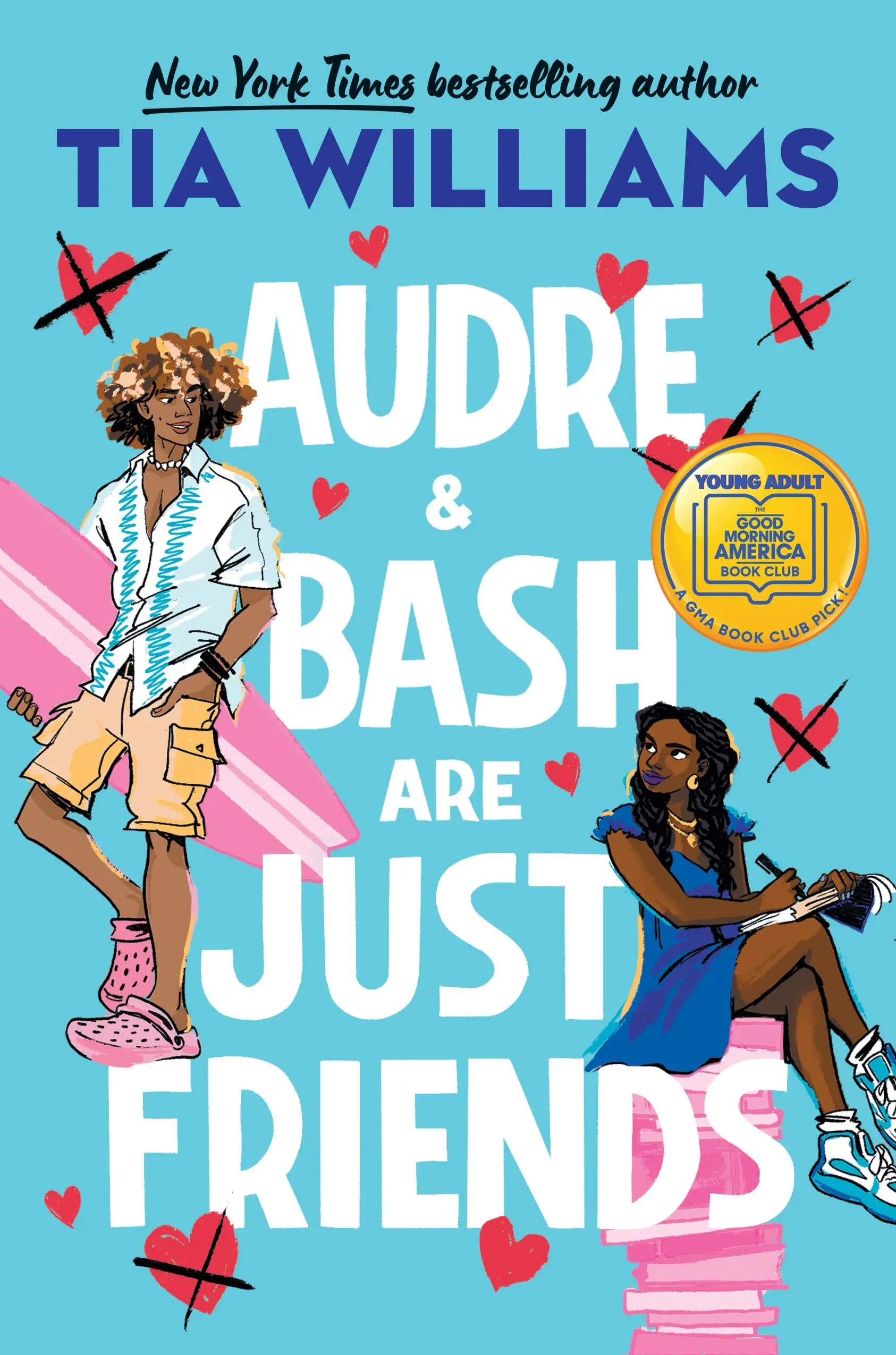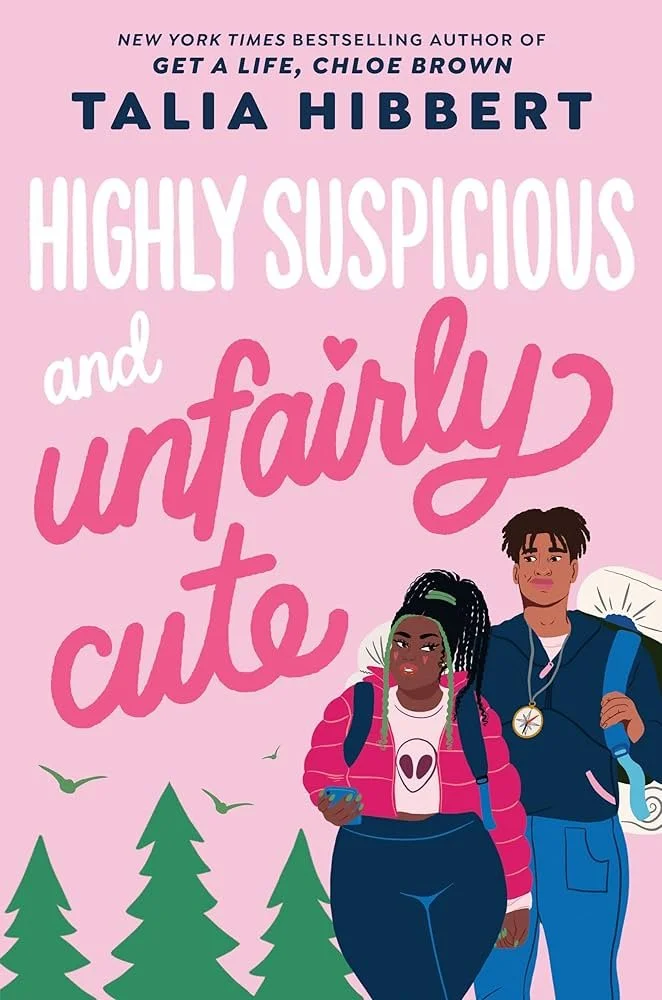We Should All Be Readin’ YA
By: Caitlyn Evans
A couple of years ago, I came across a TikTok stitch of a teacher reading and discussing a book with her high school students. In the video, students had such strong reactions to the book’s ending that I immediately went to get the audiobook from the library.
The book was Long Way Down by Jason Reynolds, a YA novel about a young boy looking to get revenge for the murder of his older brother. In his neighborhood, there are three rules:
Don’t cry,
Don’t snitch, &
Get revenge, no matter what.
Long Way Down by Jason Reynolds
On an elevator ride down from his apartment, with plans to get revenge for his brother, he is visited on each floor by the ghosts of people who tell him about their lives and how they connect to the rules of the neighborhood.
I listened to the audiobook in less than two hours, and I was just as struck by the ending as those high schoolers. I won’t spoil it for any readers, and it’s only about 200 pages, so I highly suggest you read it. It is a beautifully written novel that explores cycles of violence and its impacts on the people experiencing it. It explores grief, masculinity, and violence and leaves readers with a lot to think about and discuss. I would have loved to see the discussion fully in that teacher’s classroom when they finished.
Reading this book reminded me of one of the reasons I love young adult novels: their ability to take these large, complex social issues and make them more accessible and digestible. For children and teens, but truly for anyone. I am someone who loves to read non-fiction, and I think that continuing to learn and educate ourselves through reading is very important. But I also believe that in reading fiction, and specifically the experiences of those like and unlike us, we continue to learn about each other.
Reading, and especially reading YA novels, can teach empathy.
Through reading about the experiences of others, and in the accessible way that YA allows, individuals are able to humanize the people around them more.
About a week ago, I finished another novel by Jason Reynolds (who’s quickly become a favorite author for me) called Look Both Ways.
Look Both Ways by Jason Reynolds
In 200 pages, Jason Reynolds tells ten interconnected stories of children walking home from school. It’s a simple concept, really, but one that Jason Reynolds executes flawlessly. He truly is one of the best.
Look Both Ways depicts the varied possible experiences of young people. It explores issues of race, sexuality, and economics through those experiences, and it made me feel so many emotions as a reader. The story went from fun and absurd to serious and confusing, while somehow maintaining a lightness the whole way through.
Young people reading novels like Look Both Ways and Long Way Down are taught to connect with the experiences of others; to walk in their shoes and empathize with them. As adult readers, this simple concept of a walk home from school can be further complicated when applied to our lives.
How are we all experiencing life differently: the crosswalks and turns?
How do our identities change these experiences?
How are we similar, and where do our experiences intersect?
Reading YA has also allowed me to connect to my own experiences as an adolescent/teen.
I remember reading The Poet X by Elizabeth Acevedo for the first time and having a visceral reaction to what, in a lot of ways, felt like my experience on paper.
The Poet X by Elizabeth Acevedo
The Poet X tells the story of Xiomara, a 15-year-old Dominican girl from Harlem. She is a sophomore in a Catholic high school, a twin to a brother, and a poet. She struggles against a restrictive household that tells her sexuality in any form is to be demonized, while the outside world sexualizes her changing body and she experiences attraction for the first time.
Meanwhile, she witnesses the less restrictive lives of her twin brother and father, and she uses poetry as a means of self-expression.
Reading Xiomara’s story felt similar to my own in so many ways. As a Black girl, I experienced the gendered differences in how my sisters and I were parented versus my brothers, the oversexualization in public, the struggles with my sexuality I felt unable to discuss with any parent. Reading The Poet X was a validating experience for the young girl inside of me who’d never been able to express it all.
I had a similar experience reading Confessions of An Alleged Good Girl by Joya Goffney, the story of a preacher's daughter named Monique who, upon learning she can’t physically have sex, goes on a journey of learning to accept and love her body.
Confessions of An Alleged Good Girl by Joya Goffney
I am not a preacher’s daughter, and while my household was religious, it certainly was not as restrictive as that of Xiomara’s. I think I lived less in a “sex-negative” household and more a “sex-we just don’t talk about it” household. But the result, lacking a safe space to talk about my body, frustration with how my body was viewed and treated by others, confusion around my own sexuality and body, was very similar for myself, Xiomara, and Monique.
As an adult, I was able to read these stories, feel validated in my experiences, and even connect more with other adults after sharing my thoughts online.
In a similar way that sex was not discussed in my home, neither was dating. The result? Some questionable first experiences with dating that my parents will never know about. As an adult, I’ve gravitated to YA romance because of its healthy depictions of young dating and wholesome first loves.
Reading YA romance can be fun and relatable, while also having depth and tackling difficult topics.
I love seeing my younger self in characters, like Audre, the “too serious” 16-year-old with her whole life mapped out who hires Bash as her “fun consultant” in Audre and Bash are Just Friends by Tia Williams.
Audre & Bash Are Just Friends by Tia Williams
Audre has very high expectations of herself at a young age and believes romance will only get in the way of them. She is also navigating some difficult life experiences like complicated and changing family dynamics.
I love when the young characters are accepted for being different, but wholly themselves, like Celine, the conspiracy theory obsessed FMC of Highly Suspicious and Unfairly Cute by Talia Hibbert, and her ex-bestfriend/love interest Brad, the star football player with OCD. Talia Hibbert’s character work has always been one of my favorite things about her writing, and Celine and Brad were no different. This story was also just so much fun and had me laughing out loud.
Highly Unsuspicious and Unfairly Cute by Talia Hibbert
Similar to its ability to teach empathy and validate experiences, YA romance is uniquely situated to tackle issues of acceptance and intimacy in a format many adult readers could also enjoy and take a lot away from. Through reading, I’ve also found myself challenging internal beliefs and assumptions around dating and especially dating while young.
I love the genre of YA, for its balance of simplicity and complexity, for its lightheartedness and depth, and I think more adults should read the genre. However, I think it’s important I give our adult readers a couple of helpful reminders before you go:
Remember that you are a guest in the genre. Some of my favorite authors are YA authors, and some of my favorite books are YA novels, but I always remember that I am a guest in this space. The novels are not written with me as the intended audience, and they never should be. On that note,
You may be occasionally annoyed with the young people in these novels; with their decisions/thought processes. Remember that that is appropriate, and oftentimes the point, of these coming-of-age novels.
Similarly, be mindful of your reviews. If your review can be translated to “young people act like young people” or “children acting like children” then you can probably keep it to yourself (or note your age biases in the review). I’ve occasionally withheld any formal reviewing of a YA novel because I felt it just wasn’t appropriate for me to do so.
I’ve never listened to negative comments about adults reading young adult literature because I truly believe there is great value in us doing so. We should all be reading YA and I highly recommend you check out any of the books I talked about or the many other great books the genre has to offer!







